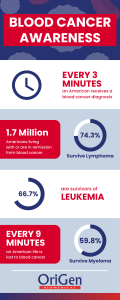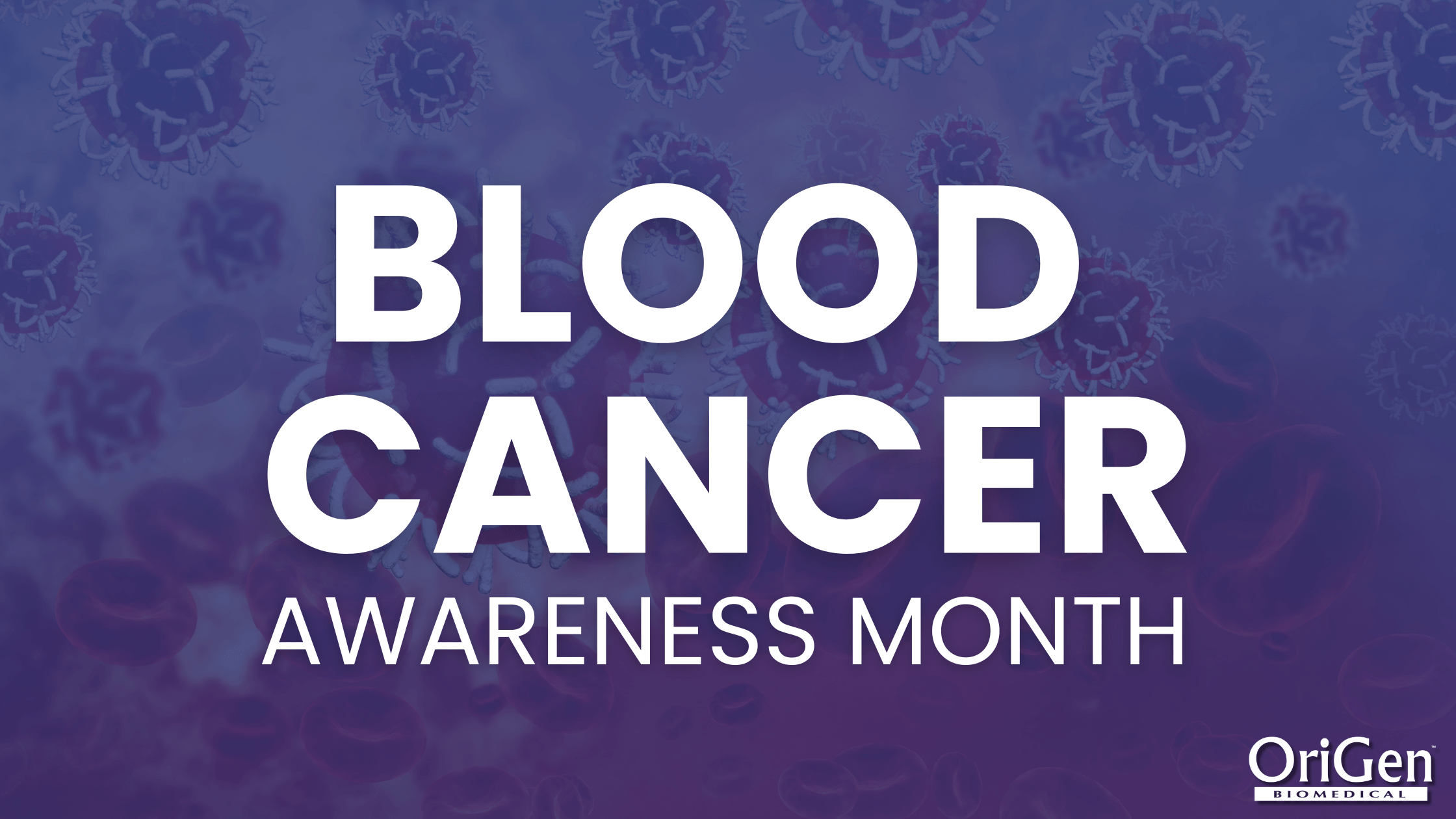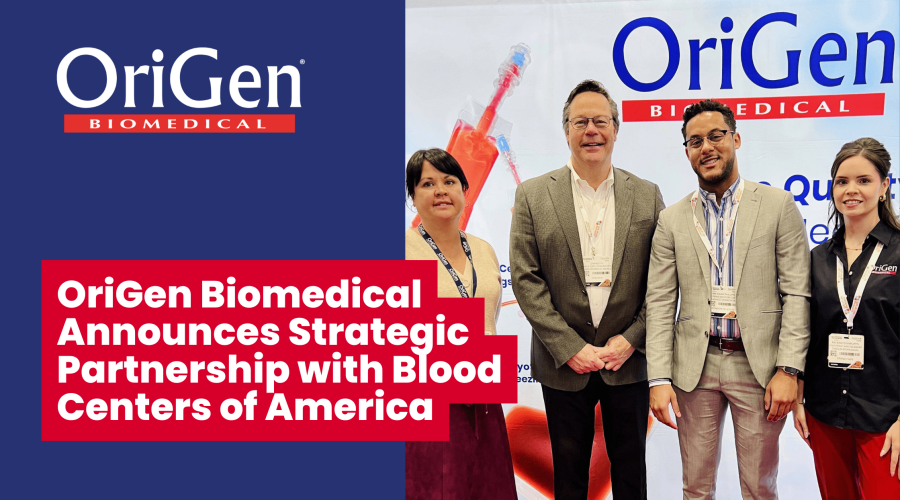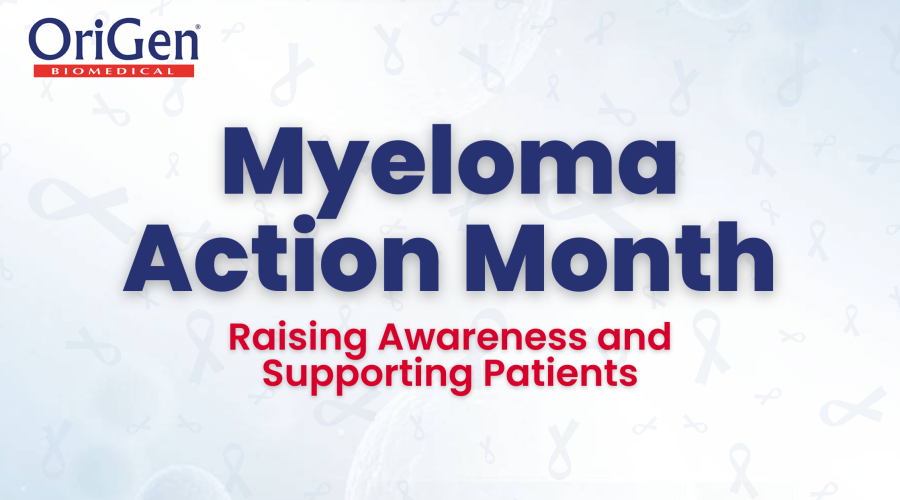#ThisIsBloodCancer
As science historian June Goodfield once said, ‘Cancer begins and ends with people.’ This powerful sentiment resonates throughout Blood Cancer Awareness Month, observed every September as a time to reflect on the nearly 1.7 million individuals in the U.S. living with or in remission from blood cancer.[1] Since 2010, this month has inspired hope, raising awareness and highlighting these often-overlooked diseases. It is a time to honor the brave warriors fighting blood cancer and to acknowledge the compassionate care community supporting them. From the relentless efforts of researchers to the compassion of physicians, nurses, and caregivers, these dedicated individuals work tirelessly to improve the lives of blood cancer patients.
People Helping People
The Leukemia and Lymphoma Society (LLS) has been on a 75-year mission to cure blood cancer. That mission starts and ends with the people at its heart: patients, survivors, caregivers, researchers, and advocates. The focus is not only on curing these complex diseases but also on ensuring that every person affected has the resources, support, and guidance to live better and fuller lives.[1]
Through innovative research, clinical trials, and various free services—from nutrition consultations to peer-to-peer programs—many organizations offer hope. Whether it’s the first day after diagnosis or years into remission, they are there, providing support at every step.
During Blood Cancer Awareness Month, various events worldwide raise funds for further research. You can make a difference by checking with your local cancer treatment centers or donating online to organizations like The Leukemia & Lymphoma Society (LLS), Cancer Research Institute, or the American Association for Cancer Research.
But what exactly is blood cancer?
Understanding Blood Cancer: More Than Just a Name
As the name suggests, blood cancer affects the blood cells and occurs when something goes wrong with the DNA in these cells. This leads to the proliferation of abnormal blood cells that don’t function correctly, compromising the body’s ability to fight infections and aid in healing. Blood cancer encompasses over 100 types of cancers that primarily start in the bone marrow, affecting blood cells, lymph nodes, and other parts of the lymphatic system.[2] The symptoms often misinterpreted as everyday ailments like exhaustion or night sweats, can make diagnosis challenging. Many people don’t realize that conditions like leukemia, lymphoma, or multiple myeloma are forms of blood cancer.[2] Raising awareness of these diseases is crucial because with awareness comes the potential for early detection and timely support.
Lymphoma is a broad term for cancer that begins in the cells of the lymphatic system. There are two main types: Hodgkin lymphoma, often curable, and non-Hodgkin lymphoma (NHL), where the prognosis depends on the specific type.[3]
Leukemia affects blood cells, with varying subtypes depending on the type involved. It occurs most frequently in adults over 55 but is also the most common cancer in children under 15.[2]
Multiple Myeloma begins in plasma cells, a type of white blood cell made in the bone marrow. It can cause various complications, including weakening bones.[2]
Blood Cancer Statistics
- Every 3 minutes, someone in the U.S. receives a blood cancer diagnosis.[1]
- Blood cancers are responsible for one death every 9 minutes in the U.S.[1]
- Survival rates have improved significantly over the years, with the five-year survival rate:[3]
- Leukemia now at 66.7%
- Non-Hodgkin Lymphoma at 74.3% and Hodgkin Lymphoma at 88.9%
- Multiple Myeloma at 59.8%

New Frontiers in Treatment: CAR T-Cell Therapy
CAR T-cell therapy represents a groundbreaking advance for treating certain types of blood cancer, including leukemia. This specialized therapy works by genetically modifying a patient’s own immune cells—specifically, T cells—to better recognize and attack cancer cells.[4]
The process begins by extracting T cells from the patient’s blood. These cells are then engineered in a lab to produce special receptors known as chimeric antigen receptors (CARs), which can target proteins found on the surface of cancer cells. Once enough of these modified CAR T cells are grown, they are infused back into the patient’s body. The engineered cells then circulate, identifying and destroying cancer cells by recognizing the specific proteins they’ve been programmed to target.
This therapy is continually evolving, with six CAR T-cell drugs currently approved by the FDA. These treatments are primarily used for cancers like diffuse large B-cell lymphoma (DLBCL), follicular lymphoma, mantle cell lymphoma, multiple myeloma, and B-cell acute lymphoblastic leukemia (ALL).[5] CAR T-cell therapy is typically reserved for patients whose cancer has returned after other treatments. However, its success offers a promising outlook for many blood cancer patients, and it’s anticipated that it will become an earlier treatment option in time
OriGen Biomedical is proud to offer various products for cell culture and cryopreservation that can be used to treat blood cancers. PermaLife® Cell Culture Bags are indicated for use in protecting, storing, and freezing cells and tissues. In addition, OriGen supplies CryoPur™ DMSO cryopreservation solutions and accessories for fluid transfer to simplify the cryopreservation process.
Join Us in the Fight Against Blood Cancer
OriGen Biomedical is proud to support the blood cancer community and contribute to developing life-saving treatments. As we look to the future, we remain committed to supporting blood cancer patients and survivors by providing the tools and technologies needed to push the boundaries of treatment and care.
We want to remind everyone that support comes in many forms—whether signing up for free resources, donating to organizations focused on finding a cure, or simply spreading awareness of the symptoms and impact of blood cancers. Now more than ever, we need a united front to ensure that no one faces this battle alone.[1]
This Blood Cancer Awareness Month, let’s unite to make a lasting difference. We can bring hope, strength, and healing to those who need it most.
Sources:
- Facts and Statistics | Leukemia and Lymphoma Society
- Leukemia—Patient Version – NCI
- Blood Cancer: Types, Symptoms, Treatment & Survival Rate
- Study predicts who may benefit from CAR-T cell therapy for blood cancers | News Center | Stanford Medicine
- Milton W – Cancer Research Institute
- September is Leukemia and Lymphoma Awareness Month




